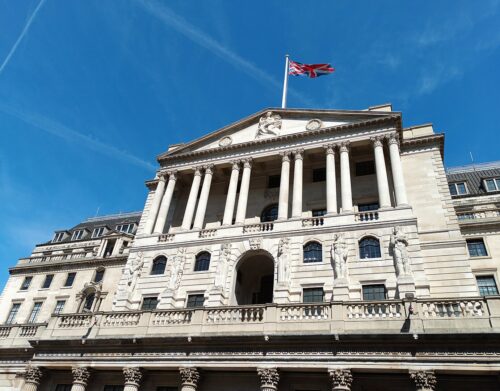The Bank of England may implement more significant interest rate cuts if signs of a slowdown in the UK job market continue to emerge, Governor Andrew Bailey has said.
In an interview with The Times, Bailey reiterated his belief that interest rates are on a “downward path,” indicating that monetary policy may ease further. The central bank’s current base rate stands at 4.25%, and economists anticipate another reduction could come at the Bank’s upcoming policy meeting on 7 August.
Interest rates directly impact millions of Britons through their effects on mortgage payments, credit card borrowing, and savings returns.
“I think the path [for interest rates] is down,” Bailey told The Times. “But we continue to use the words ‘gradual and careful’ because… some people say to me, ‘why are you cutting when inflation’s above target?’”
Bailey explained that the UK economy is currently operating below its potential, creating economic “slack” — underutilized capacity in the form of idle factories or unemployed individuals — which helps to dampen inflationary pressures.
“If we saw the slack opening up much more quickly, that would lead us to a different conclusion,” he added, suggesting a more aggressive easing stance could be justified if economic underperformance accelerates.
Bailey pointed to growing evidence that employers are reacting to economic conditions by adjusting hiring patterns and reducing employee hours, while wage growth has also moderated. He attributed part of this shift to Chancellor Rachel Reeves’ recent decision to increase National Insurance contributions (NIC) for employers — a move the Treasury estimates will raise £25bn annually.
Reeves raised the NIC rate from 13.8% to 15% in April, placing additional financial pressure on businesses.
Official data from the Office for National Statistics (ONS) showed the number of job vacancies fell to 736,000 in the three months to May — the lowest since 2021, when hiring activity had stalled during the height of the Covid-19 pandemic.
Simultaneously, the availability of workers in the labour market has surged at its fastest pace since the pandemic, according to a joint survey from KPMG and the Recruitment and Employment Confederation.
Speaking to BBC Radio 4’s Today programme, Ian McAllister, chief executive of security services provider MAN Commercial Protection, described the increased NIC burden as “challenging” for hiring and warned of wider economic fallout. “Our big concern is a recession,” he said. “A rate cut is obviously a benefit to all of us.”
Meanwhile, Louise Dudley, a portfolio manager at investment firm Federated Hermes, told Today that Bailey’s remarks suggest a cut is likely “sooner rather than later.”
The Bank of England opted to keep interest rates unchanged at its last meeting in June, following two rate cuts earlier in the year. At that time, Bailey also emphasized that future rate reductions would follow a “gradual downward path.”
However, fresh signs of economic fragility are emerging. The UK economy shrank by 0.1% in May, following a similar contraction in April, according to the latest ONS figures. The back-to-back declines were primarily attributed to a slump in manufacturing output, while retail sales also registered significant weakness.
With the UK economy showing signs of stagnation and labour market pressures intensifying, attention is now firmly on the Bank’s August meeting, where policymakers may decide whether to accelerate the pace of rate reductions to head off a deeper slowdown.






